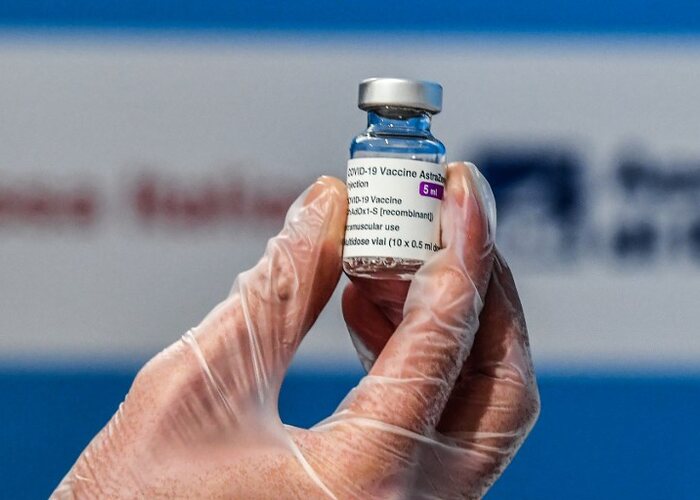A possible link between AstraZeneca's coronavirus vaccine and very rare cases of unusual blood clots with low blood platelets has been found, the European Medicines Agency (EMA) confirmed during a press conference on Wednesday.
EMA’s safety committee (PRAC) concluded that unusual blood clots with low blood platelets should be listed as very rare side effects of AstraZeneca's vaccine.
"However, the PRAC has confirmed that the benefits of the AstraZeneca vaccine in preventing Covid-19 overall outweigh the risks of side effects," stressed Emer Cooke, EMA's executive director.
The committee considered all currently available evidence, including the advice from an ad hoc expert group, in reaching its conclusion, the EMA stated.
Related News
- Belgium will set age limit on AstraZeneca vaccine
- Janssen vaccine also under EMA scrutiny for four blood clots
So far, most of the cases reported have occurred in women under 60 years of age within two weeks of vaccination, according to the Agency. "Based on the currently available evidence, however, specific risk factors such as age, gender or previous medical history of clotting disorders have not been able to be confirmed, as the rare events are seen in all ages, and in men and women," Cooke added.
Know The Signs
"It is important that both vaccinated people and healthcare professionals are aware of the signs and symptoms of these unusual blood clotting disorders and can spot them quickly to minimise the risk," Cooke explained.
The agency will continue to monitor all the scientific evidence available on both the effectiveness and safety of all the authorised vaccines. "We will issue further recommendations, if necessary, on the grounds of robust evidence," she added. "This case shows that our pharmacovigilance system works: these very rare and unusual events were picked up, identified, analysed and we have made a clear science-based recommendation to allow the safe and effective use of the vaccine."
The PRAC carried out a detailed review of 62 cases of cerebral venous sinus thrombosis (blood clotting in the brain) and 24 cases of splanchnic vein thrombosis in the EU drug safety database as of 22 March 2021, 18 of which were fatal, according to PRAC chair Sabine Straus.
"No specific risk factors could be identified, based on the current data," she said. "The PRAC is not recommending any specific measures to reduce the risk."
"Most of the cases occurred in people under 60 years, and in women," Straus added. "However, due to different ways the vaccine is being used in different countries, we did not conclude that age and gender were clear risk factors for these very rare side effects."
Further research and analysis of this important issue will take place, according to her. "The PRAC will continue to assess all evidence that becomes available on this issue while the vaccination campaigns continue."
She stressed that "it is of great importance" that people coming for vaccination are aware of these risks and look out for possible signs or symptoms.
Later today, Belgium’s health ministers will convene again to discuss the EMA's latest announcement.
Earlier in the afternoon, they decided that the country will temporarily introduce a minimum age limit of either 55 or 60 years for the use of AstraZeneca’s vaccines.
Health ministers from the European Union’s member states, including Belgium’s Federal Public Health Minister Frank Vandenbroucke, will meet at 6:00 PM on Wednesday to discuss AstraZeneca’s vaccine and to streamline the EU's approach.
Maïthé Chini
The Brussels Times

